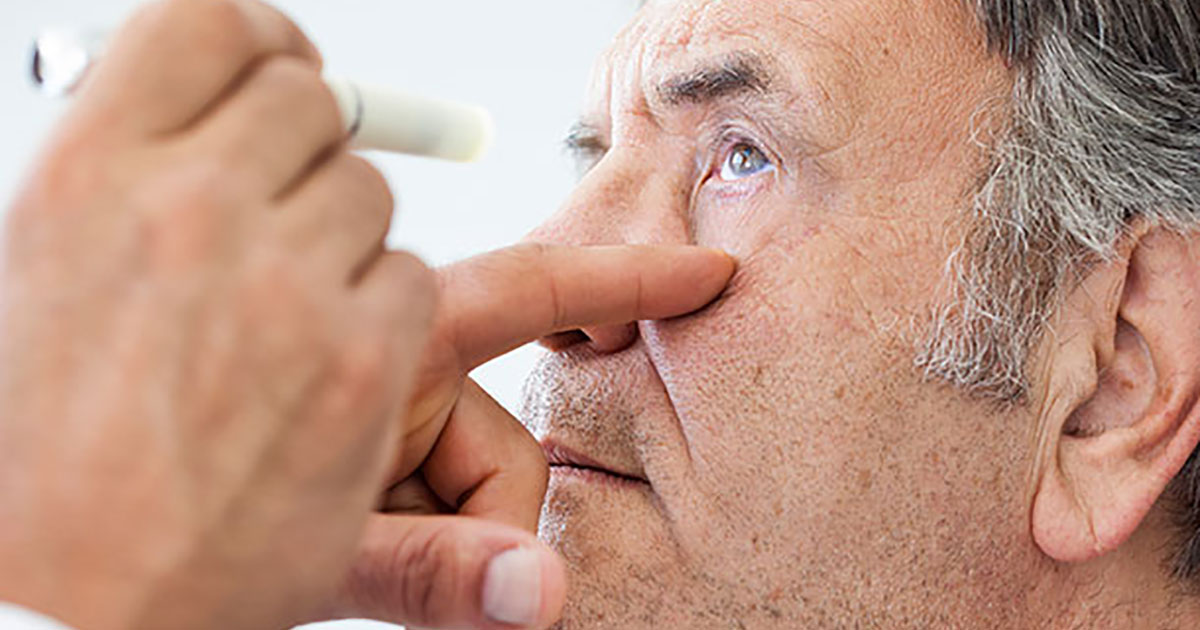- 19 February 2024
- 424
Understanding Temporary Blindness: More Than Just a Stroke

Introduction
Sudden Vision Loss can be scary, but it’s not always caused by a stroke. There are many reasons why it might happen. This guide will help you understand what Sudden Vision Loss is, what causes it, and what you can do about it.
What is Temporary Blindness?
Temporary blindness, also called transient vision loss or amaurosis fugax, is when you suddenly can’t see for a short time. It usually goes away on its own within a few minutes or hours. It’s important to know that temporary blindness can happen for different reasons, not just strokes.
How is Temporary Blindness Different from Stroke-Related Blindness?
Temporary blindness can happen because of a stroke, but it can also be caused by other things. It’s important to know the difference so you can get the right treatment.
Stroke-Related Temporary Blindness:
- Transient Ischemic Attacks (TIAs): These are like mini-strokes that happen when blood flow to the brain is temporarily blocked. They can cause temporary blindness.
- Amaurosis Fugax: This is when you have brief episodes of vision loss in one eye. It can happen if a blood clot blocks a blood vessel in the eye.
Other Causes of Sudden Vision Loss:
- Ocular Migraines: These can cause temporary vision problems, like seeing flickering lights or blind spots, without having a headache.
- Retinal Migraines: These can cause temporary vision loss in one eye, along with seeing shimmering or zigzagging patterns.
- Glaucoma: This can cause sudden, severe eye pain, blurred vision, and seeing halos around lights.
- Hypotension: When your blood pressure drops suddenly, you might have temporary vision loss because your brain isn’t getting enough blood.

Signs and Symptoms
Knowing the signs of Sudden Vision Loss can help you get help quickly if it happens to you or someone you know.
Common Symptoms:
- Sudden Loss of Vision: Temporary blindness happens suddenly and goes away on its own.
- Vision Loss in One Eye: Most of the time, temporary blindness affects only one eye.
- Other Symptoms: Sometimes, temporary blindness comes with other symptoms, like feeling dizzy or weak.
When to See a Doctor:
- If it Keeps Happening: Temporary blindness usually only happens once, but if it keeps happening, you should see a doctor.
- If You Have Other Symptoms: If you have other symptoms, like a headache or trouble speaking, you should see a doctor right away.
- If You Have Risk Factors: If you have things like high blood pressure or diabetes, you might be more likely to have temporary blindness. You should see a doctor to get checked out. Explore More About (Popcorn Lungs Risk Factors)

Getting Checked Out and What to Do
If you have temporary blindness, it’s important to see a doctor to find out what’s causing it and what you can do about it.
What the Doctor Will Do:
- Ask About Your Health: The doctor will ask you questions about your health and your symptoms.
- Check Your Eyes: They’ll look at your eyes to see if there’s anything wrong.
- Do Tests: Depending on what they think might be causing your temporary blindness, they might do tests like an ultrasound or an MRI.
What You Can Do:
- Take Medicine: If your temporary blindness is caused by a stroke or a problem with your blood vessels, your doctor might give you medicine to help prevent it from happening again.
- Change Your Lifestyle: If you have things like high blood pressure or diabetes, your doctor might tell you to make changes to your lifestyle, like eating healthier or exercising more.
- Get Surgery: In some cases, like if you have glaucoma, you might need surgery to fix the problem.
How to Prevent Temporary Blindness
There are things you can do to lower your chances of having temporary blindness.
Tips for Preventing Temporary Blindness:
- Eat Healthy Foods: Eating lots of fruits, vegetables, and whole grains can help keep your blood vessels healthy.
- Exercise Regularly: Doing activities like walking, swimming, or biking can help keep your heart and blood vessels healthy.
- Don’t Smoke: Smoking can make your blood vessels narrow, which can increase your chances of having temporary blindness.
- Manage Stress: Doing things like meditation or yoga can help you relax and lower your stress levels.

| Causes of Temporary Blindness | Stroke-Related | Other Causes |
|---|---|---|
| Symptoms | Transient Ischemic Attacks (TIAs), Amaurosis Fugax | Ocular Migraines, Retinal Migraines, Glaucoma, Hypotension |
| Treatment | Antiplatelet Therapy, Surgery | Medication, Lifestyle Changes |
| Prevention | Risk Factor Modification | Healthy Diet, Regular Exercise, Smoking Cessation, Stress Management |
Conclusion
Temporary blindness can be scary, but it’s not always a sign of something serious like a stroke. There are many reasons why it might happen, and there are things you can do to lower your chances of having it. If you have temporary blindness, it’s important to see a doctor to find out what’s causing it and what you can do about it. By taking care of your health and making some lifestyle changes, you can lower your chances of having temporary blindness and keep your eyes and body healthy.

